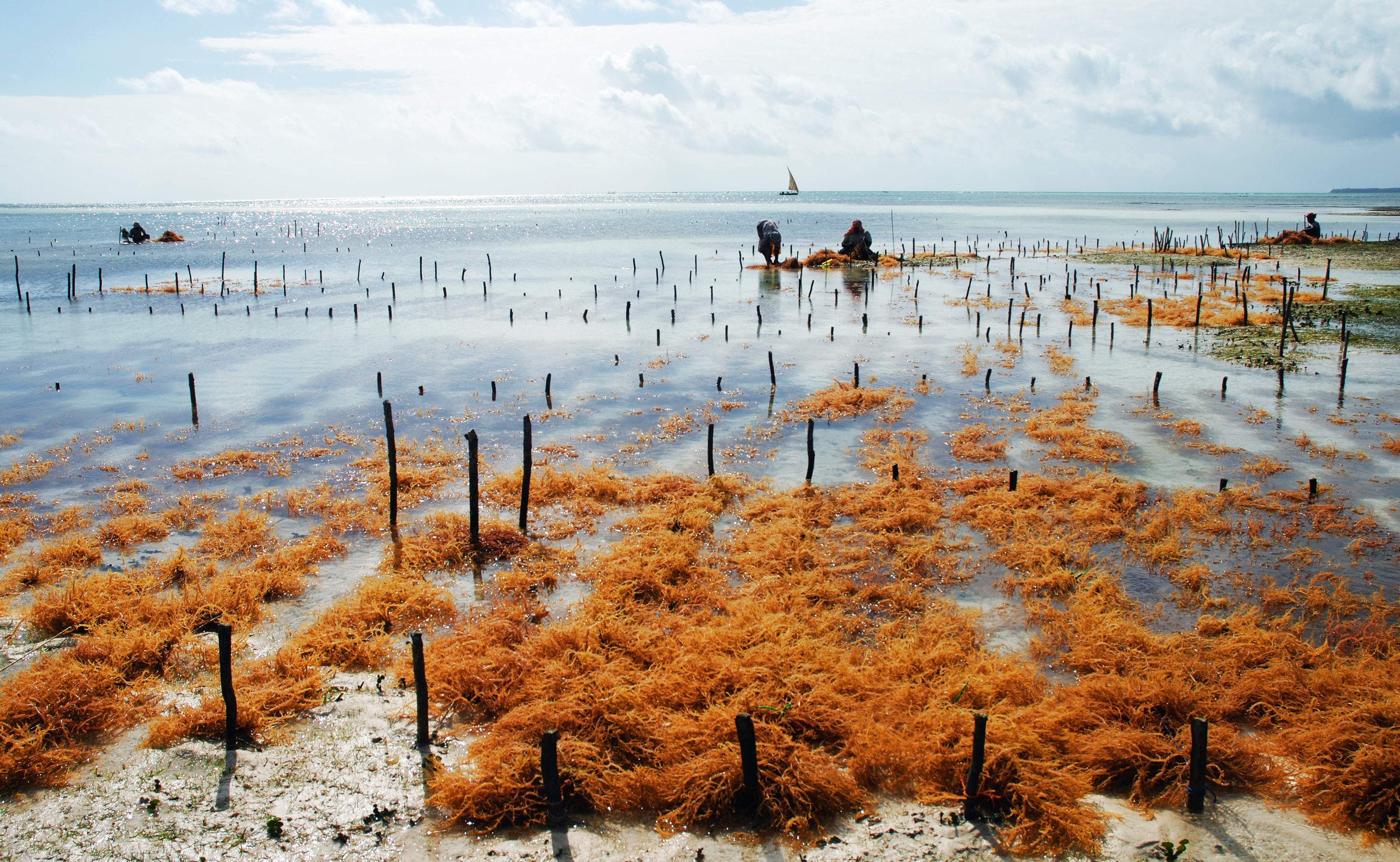Seaweed discovery could help slow methane emissions
A farmer's unlikely discovery has the potential to change the world.
-

A seaweed farm in Zanzibar
By far, the most effective way to reduce global warming is to curb greenhouse gas emissions. In this context, a fresh discovery in Canada may fuel a slowdown of these emissions.
A Canadian farmer by the name of Joe Dorgan, who produces and distributes seaweed, stumbled upon a fresh discovery that may help reduce the impact of methane on global warming around the world.
The seaweeds he harvested were previously used for livestock feed and as a fertilizer. According to CBS, Dorgan sent samples to Dalhousie University in Nova Scotia to test for organic certification. Through that, it was discovered that the high uptake of natural vitamins and minerals in seaweed drove up reproduction and milk production in cows.
Dorgan then knew that seaweed would be healthy for cows, but research revealed an unintended consequence: seaweed made cows less gassy.
How does this discovery contribute to climate change?
Livestock account for about one-third of all methane emissions, which is responsible for 30% of global warming.
"They [researchers] found out that feeding seaweed to cattle would reduce greenhouse gases by as high as 40%," Dorgan said.
Digesting normal feed requires extra digestion from livestock and causes them to burp more. Those burps emit methane, a heat-trapping greenhouse gas that's 80 times more potent than carbon dioxide.
The increase in methane levels on a global scale as a result of the growth of the food industry motivated chief scientist at Futurefeed, Rob Kinley, who worked with Dorgan on his organic certification 15 years ago, to find a seaweed species with even more methane-reducing power.
"We started testing seaweeds from coastal Australia, and it wasn't long before the Asparagopsis species showed up, and it showed up in a big way. So big that we didn't even believe what we were seeing," Kinley said. "It took multiple runs of testing this before we believed what we were seeing, which was we couldn't find methane anymore."
Goldman said cultivation only takes about 90 days, allowing for multiple cycles per year, and it can be grown by aquaculture operations almost anywhere if the climate is suitable. Feeding 1.5 billion cows in farms around the world, however, is a tall order.
Yet, this is still feasible because adding seaweed to a cow's diet means they consume less food; seaweed need only be included in 0.2% of a cow's diet for gases to be reduced.
While there's lots of optimism for this approach, critics say it hasn't yet been proven to be efficient on a large scale. It's clear that methane reduction from seaweed is effective in the short term, but there's some fear that its effects may diminish over time as the cow's digestive system adapts.

 3 Min Read
3 Min Read








